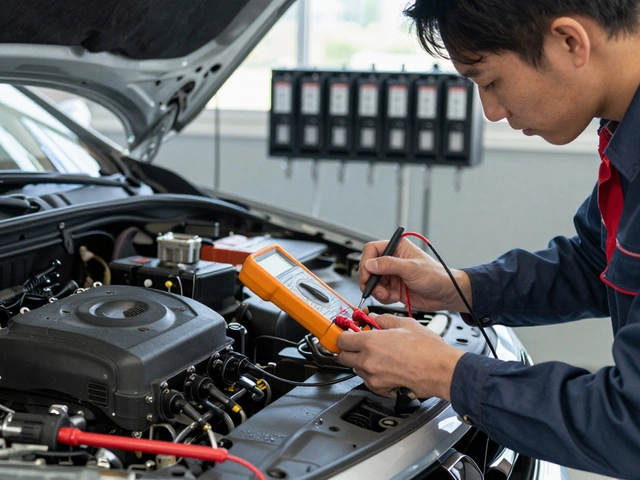Cost of Fuel Pump: What to Expect and How to Save
If your car is sputtering or won’t start, the fuel pump could be the culprit. Before you call a garage, it helps to know the typical price range so you’re not caught off guard. A new pump for a small hatchback usually runs between £80 and £150, while larger SUVs can cost £200‑£300. Labor adds another £50‑£120 depending on the shop and how easy the pump is to reach. Knowing these numbers lets you budget and compare quotes.
What Affects Fuel Pump Prices?
Several things change the final bill. First, the make and model matter – premium brands often charge more than generic equivalents. Second, the pump type (electric vs. mechanical) influences cost; electric pumps are common now and tend to be pricier. Third, where the pump sits in the car matters – a pump inside the fuel tank requires more work to remove, raising labor costs. Finally, local market rates and whether you choose OEM (original equipment manufacturer) or aftermarket parts will tip the scale.
Don’t forget extra fees like disposal of the old pump or a fuel system flush. Some garages bundle these into a single price, others list them separately. Ask for a detailed breakdown so you can see where every pound goes.
How to Save Money on Fuel Pump Repairs
Shop around before settling on a mechanic. Many independent garages give the same quality as dealers but charge less for labor. If you’re comfortable with tools, you can buy a replacement pump online and just pay for the install. Look for reputable sellers with reviews – a cheap pump that fails quickly ends up costing more.
Another tip is to check your warranty. Newer cars often have a powertrain warranty that covers the fuel pump for several years. Even if your car is out of warranty, some parts retailers offer a limited guarantee that can save you a repair later.
Regular maintenance helps too. Keep the fuel filter clean; a clogged filter forces the pump to work harder and can lead to premature failure. A quick filter change every 20,000‑30,000 miles is cheap and can extend pump life, saving you a costly replacement down the road.
In short, expect to spend roughly £150‑£350 for a full fuel pump job, but you can trim the bill by comparing quotes, buying the part yourself, and staying on top of routine care. Knowing the factors that drive cost puts you in control and helps you avoid surprise charges.
 11 March 2025
11 March 2025
How Much is a New Fuel Pump? Costs & Tips
Replacing a faulty fuel pump can be quite the task, involving considerations ranging from the price of the pump itself to various installation charges. This article breaks down how much a new fuel pump typically costs, what affects the price, and some tips to save money. From understanding labor costs to tips for prolonging pump life, it's all covered here. Essential knowledge for car owners looking to keep their vehicles running smoothly.
Latest Posts
-

Buying a Car Battery: Smart Tips for the Best Price
-

Bad Clutch Sounds: What to Listen for Before It's Too Late
-

How Does a Mechanic Diagnose a Bad Fuel Pump?
-

Can a Car Run Without Spark Plugs? Essential Facts for Car Owners
-

What Helps a Bad Fuel Pump? Fixes, Temporary Solutions, and When to Replace It
Tags
- car maintenance
- engine oil
- spark plugs
- brake pads
- engine performance
- vehicle maintenance
- spark plug replacement
- windshield wipers
- fuel pump
- suspension parts
- clutch replacement
- oil change
- clutch kit
- car suspension
- car performance
- air filters
- car radiator
- exhaust systems
- fuel pump replacement
- engine misfire

0